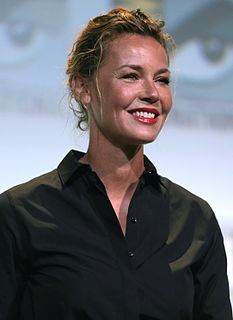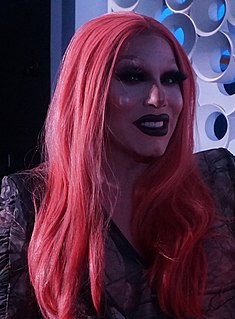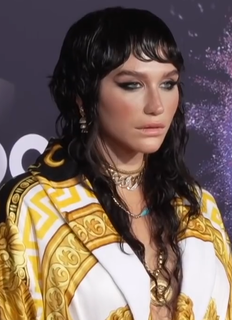A Quote by Alan Moore
Certainly, my many years working in the comics industry, creating products that I do not own, has made me rather fierce on the subject of giving up rights.
Related Quotes
The lovely thing about writing comics for so many years is that comics is a medium that is mistaken for a genre. It's not that there are not genres within comics, but because comics tend to be regarded as a genre in itself, content becomes secondary; as long as I was doing a comic, people would pick it up.
For many years now, I have been an outspoken supporter of civil and human rights for gay and lesbian people. Gays and lesbians stood up for civil rights in Montgomery, Selma, in Albany, Ga. and St. Augustine, Fla., and many other campaigns of the Civil Rights Movement. Many of these courageous men and women were fighting for my freedom at a time when they could find few voices for their own, and I salute their contributions.
I never stop working, I never stop creating. And I never sit around and wait for the industry to need me. I force the industry to want me by continuously creating what I do. And in this age of airplanes and Internet, it's not about where you are, it's more about what you do. But I travel every single day.
There are so many comics about violence. I'm not entertained or amused by violence, and I'd rather not have it in my life. Sex, on the other hand, is something the vast majority of us enjoy, yet it rarely seems to be the subject of comics. Pornography is usually bland, repetitive and ugly, and, at most, 'does the job.' I always wanted to make a book that is pornographic, but is also, I hope, beautiful, and mysterious, and engages the mind.
I've published many biographies over the years and enjoyed working with writers on their research, discussing it, thinking about it and how it revealed their subject - and one day the impulse came to me to write a life of someone. I made a long list of possible subjects and [ Barbara] Stanwyck was on the list.
The dirty little secret about comics is that the wall to getting published is actually not that high. You can publish your own comic. You can have your comic printed by the same people that print Marvel and DC and Image's comics for, I think, it's about $2,000 for a print run. So you can Kickstart it and get your own comic made. It depends on what is considered success to you. So if you need to be published by the Big Two to feel that you've made it, well, you should start working very hard.
Many billboards and magazine ads have resorted to showing isolated body parts rather than full-body portraits of models using or wearing products. This style of photography, known in the industry as abstract representation, allows the viewer to see himself in the advertisement, rather than the model.






































